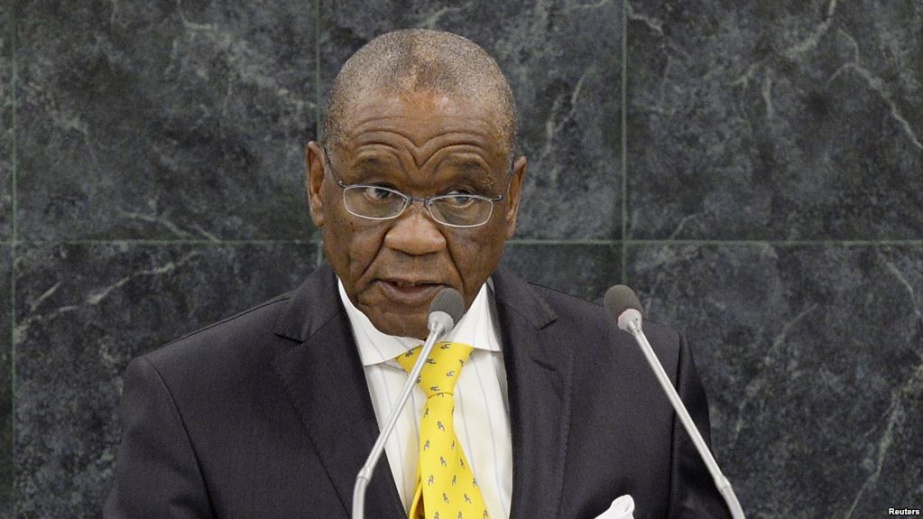By Peter Olorunnisomo – Politics has largely been considered classically to be a game of service and social responsibility. At least traditional African societies have always put premium on the abilities to give service(s). Commensurately, therefore, remunerations are leveraged for them. These can be monetary or a matter of honour.

Western cultures also reflect this but the tools of assessment differ in much the same way as political latitudes are allowed. The infusion of capitalist principles gives a direction to the political order in these societies. Consequently people politicians can talk of being full time office holders and private lives are put on a sustainable reality commensurate to the standings. Nevertheless, not all are expected to consider their offices on a full time basis and these are still allowed some measure of compensation.
The world order now has made politics lucrative and an avenue to fuel selfish, political ambitions at the expense of the state. This ordinarily, as many examples would show, promote the sacrifice of true service, integrity, and patriotism in terms of loyalty to the electorate for expedient moves to subvert the people’s mandate. This could begin to imply corruption.

Recent reports have it that Members of Parliament, MPs, in Lesotho have demanded a twofold increase of their current salaries which is pegged at 37,000 Lesotho loti (around $2,600.)
The Lesotho Times, a privately owned newspaper reported that Prime Minister Thomas Thabane had instructed Finance Minister Moeketsi Majoro to look into a “revised salary structure” for the lawmakers.
They are demanding gross monthly salaries of up to 74 000 each, equivalent to $5,340. Their main justification for the demand is to be paid a living wage whiles being able to better serve their constituencies.
The portal reports that with a very low standard of living that sees the average factory worker earning about $144 a month, the MPs are among the best paid in the southern African country.
According to reports, PM Thabane had recently told the National Assembly that he had tasked the finance Minister to “establish a body made up of various ministers to implement the proposed revised parliamentarians’ salaries and incentives structure”.
The newspaper quoted unnamed MPs who confirmed that talks were far advanced and that their demands was also based on public outcry against interest free loans they were billed to receive.
One such MP said “when it became evident that the electorate was not happy with the M500 000 interest-free loans parliamentarians enjoy at the beginning of each term.
“The majority of legislators are willing to forgo the M500 000 loans but for that to happen, our salaries must be doubled.
“Without the interest-free loans, we will need a decent living wage to take care of ourselves and to enable us to continue assisting people in our constituencies,” the source added.
It is thus clear that the citizens of the state are not in support of the purported increase but it would appear that their voices are lost in the vocal strength of a few who are sworn to listen to them and so act accordingly.
This would seem to be a common phenomenon in developing states where a certain level of poverty (unhealthy to the nation) is prevalent. More profound is what results may yield if the GDP of such states is taken into account against the national revenue. A school of thought would rationalise the evaluation of labour engaged in comparative to other public services in the state and thus fashion out a more appealing and realistic wage structure that would not irk the economy or the people – and this can be considered an aspect of peace.
The MPs are also making demands with respect to the duration they could be eligible for pensions. A Nigerian context would have members of the House of Assembly eligible for pensions/ex-gratia awards after only one tenure of four years compared to others in the public service who necessarily must work in confirmed appointments for five years before qualification for a gratuity a fraction of a legislative earning and then ten years for pension but maturing at the age of forty-five and then maximum thirty-five years or sixty years of age to earn what a legislator can pay in one month.
This is an issue that has gathered a handful of political remorse in the House.
The Lesotho National Assembly Chief Whip refused to comment on the move whiles the Finance Minister is on record as saying the news was a murmur because there was no salary revision as far as he was concerned.
The tiny nation of about 2.3 million according to World Bank estimates has been hit by political instability for five years.
It is one of the poorest countries in the world and depends essentially on its South African neighbour which provides much of its water. It had until 1980 used the South African rand as its legal tender.
Kindly follow us on twitter:@AfricanVoice2









